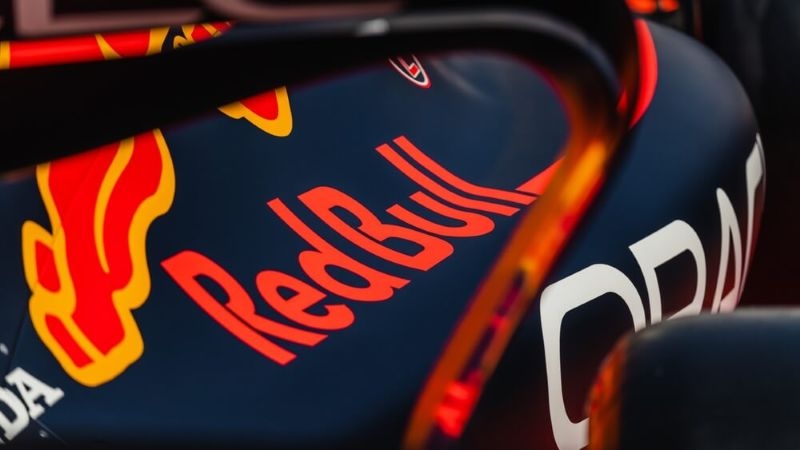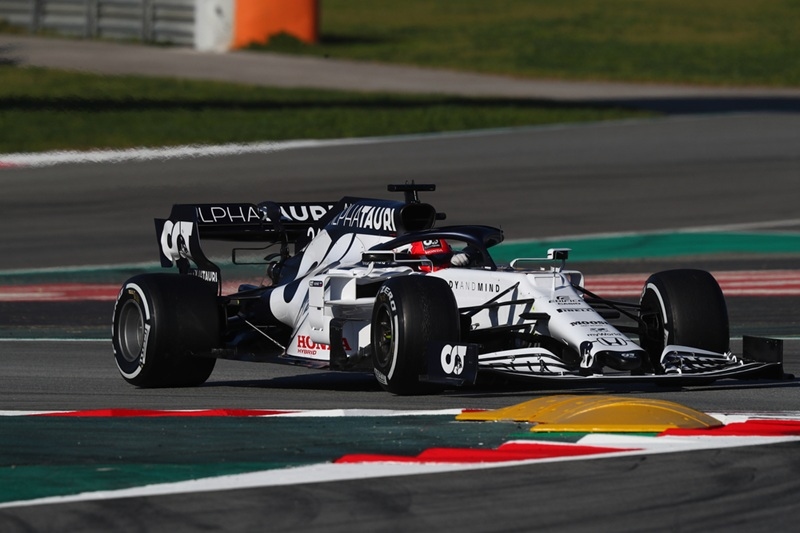The Dietary Habits That Propel F1 Drivers To Victory

Image Source: YouTube
It's commonly understood that motorsport athletes rank among the most physically fit in the sports world. While this might surprise those who don't view their profession as physically taxing as soccer or tennis, the rigorous demands placed on drivers necessitate a high level of fitness and robust health to excel. As such, each driver must adhere to a tailored nutrition and hydration regimen. In reality, Formula 1 stands as both a physically and mentally challenging endeavor. Drivers contend with intense forces, experiencing up to 2G when accelerating, 5G when braking, and between 4G and 7G when cornering, all while enduring prolonged periods of high-speed tension behind the wheel.
Throughout a typical F1 season, spanning over eight months and encompassing more than twenty races, competitors often face extreme environmental conditions like humidity, heat, or rain. This demanding travel schedule undoubtedly places considerable strain on the nutritional and fitness requirements of drivers. Hence, drivers adhere to rigorous physical training programs designed to enhance muscle strength, mitigate injuries, and manage body weight. This emphasis on strength training constitutes a significant component of their offseason preparations.
Drivers Must Prioritize Nutrition

Image Source: F1
Beyond race days, drivers prioritize nutrition to optimize body composition and strength to navigate high speeds. Their diets are typically abundant in fruits, vegetables, and whole grains to bolster immune function and sustain energy levels. Carbohydrates are strategically consumed before and after exercise, particularly in preparation for extended stints behind the wheel, to bolster performance.
It is imperative for Formula 1 drivers to meticulously manage their nutrition akin to athletes competing in traditional field sports. Sutton particularly underscored the significance of maintaining a high protein intake to preserve muscle mass and foster muscle protein synthesis and strength development. Drivers must monitor not only their total protein intake but also the quality of protein sources, aiming for approximately two grams per kilogram of body weight per day, distributed across small, frequent doses every three to four hours. Chicken and fish emerge as preferred protein sources, occasionally supplemented with lean red meat.
Optimal Carbohydrate Selections
The term "carbohydrates" encompasses a variety of foods, and experts advise sports enthusiasts to prioritize complex, slow-burning carbohydrates. These types of carbohydrates offer sustained energy levels during races and extended training sessions. Examples include oatmeal, brown rice, and certain cereals, all of which not only supply fiber but also furnish essential vitamins and minerals. Brown rice, for instance, boasts potassium and magnesium, aiding in nerve transmission, muscle function, blood pressure regulation, and hydration maintenance within the body. Additionally, phosphorus found in rice contributes to pH regulation by buffering excess acids and alkalis.
Augmenting this dietary foundation, the consumption of five to seven servings of fruits and vegetables per day is recommended. These nutrient-rich sources provide vitamins A, K, and B6, as well as iron and calcium, crucial for combating inflammation. Berries like blackberries, raspberries, and blueberries are particularly advantageous for motorsport athletes, assisting in post-training and post-race muscle recovery while fortifying immune function. Conversely, the rigorous travel schedules endured by Formula 1 teams between competitions necessitate meticulous preparation to mitigate the risk of poor dietary habits or susceptibility to illnesses such as upper respiratory tract infections. Prior planning becomes indispensable during these periods. Equally significant are practices of good hygiene and sticking to familiar foods to safeguard against illnesses when in foreign locales.
Prioritizing Hydration and Dietary Considerations

Image Source: F1
Incorporating dairy products, legumes, quinoa, and nuts provides viable alternatives for protein consumption. For athletes adhering to a vegetarian or vegan diet, such as Lewis Hamilton, compensating for the absence of animal protein necessitates additional attention, highlighting the importance of including secondary protein sources in their dietary plans. Rice protein, for instance, offers all essential amino acids required by athletes and is often preferred for its digestive benefits over whey protein. Furthermore, as emphasized earlier, preventing dehydration remains paramount, particularly for riders facing the risk of losing up to five percent of their body mass through perspiration in a single race. Prior to race day, fluid intake should be maintained by sipping fluids alongside the consumption of fruits and smoothies rich in carbohydrates to fuel energy levels. Fruit juices and carbohydrate-electrolyte drinks can serve as additional aids in enhancing energy levels and hydration.
However, it's crucial to acknowledge that dietary requirements for sports drivers should adapt to the intensity of their physical exertion. Increased carbohydrate intake proves beneficial during extended track sessions while reducing overall carbohydrate and calorie intake on days of reduced activity is advisable.
You May Also Read: The Art Of Utilizing F1 Fantasy Chips For Maximum Impact
Intensive Training Regimen
Throughout the Formula 1 season, drivers adhere to maintenance routines alongside targeted strength training tailored to their individual objectives. Additionally, they dedicate time to cardiovascular exercises like swimming, cycling, and running, which aid in managing physique development. While the precise caloric expenditure during both competition and training, whether on the track or in simulators, remains uncertain, there's the unanimous acknowledgment of nutrition's pivotal role in bolstering their physical and mental capabilities.
Moreover, Formula 1 drivers must endure extreme heat, particularly in races held in hot climates, leading to significant fluid loss through sweating, sometimes amounting to a reduction of three to four liters of body weight in a single racepotentially equating to a five percent decline in body mass. Thus, maintaining hydration pre- and post-race proves crucial for sustaining focus and facilitating recovery. Before and during races, drivers rely on carbohydrate-based electrolyte beverages to regulate blood glucose levels and replenish fluids and electrolytes lost through perspiration. While caffeine can enhance alertness and reaction times, excessive consumption may exacerbate dehydration due to its mild diuretic effect, necessitating occasional intake.
Similar Reads You May Enjoy: Understanding F1 Engine Penalties: Unraveling The Impact
Conclusion
The dietary habits embraced by Formula 1 drivers serve as crucial elements propelling them towards victory on the track. From prioritizing complex carbohydrates like oatmeal and brown rice for sustained energy to incorporating nutrient-dense fruits and vegetables such as berries for enhanced recovery and immune support, every aspect of their diet is meticulously crafted to optimize performance. Furthermore, the demanding travel schedules and intense physical exertion demand careful attention to nutrition and hydration to prevent setbacks like dehydration and illness. By prioritizing good hygiene practices and sticking to familiar, wholesome foods, drivers can ensure they remain in peak condition regardless of the challenges they face.
This content was created by AI




